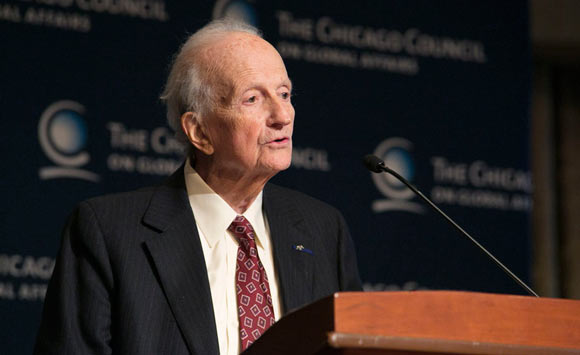Why was Gary Becker Awarded the Nobel Prize for Economics in 1992?
Gary Becker: A Nobel Laureate for Pioneering Human Capital and Economic Analysis
In 1992, the Nobel Prize in Economic Sciences was awarded to Gary Becker, an American economist renowned for his innovative research and pioneering contributions to the field of economics. Becker’s work has significantly influenced the understanding of human behavior, human capital, and the broader economic implications of individual decision-making.

1. The Economics of Human Capital
One of Gary Becker’s most influential and groundbreaking contributions is his research on the economics of human capital. In his seminal work, “Human Capital: A Theoretical and Empirical Analysis,” published in 1964, Becker introduced the concept of human capital, which refers to the knowledge, skills, and abilities that individuals acquire through education, training, and experience.
Becker argued that investing in human capital yields long-term benefits by increasing an individual’s productivity and earning potential. He demonstrated that education and training decisions are not solely driven by personal development but are also rational investments aimed at enhancing future economic returns. This insight laid the foundation for modern human capital theory, transforming the way economists analyze the role of education and training in economic development.
2. The Economics of Discrimination
Another significant contribution by Becker is his exploration of the economics of discrimination. In his influential book, “The Economics of Discrimination,” published in 1957, Becker examined the economic consequences of discrimination based on race, gender, and other factors. He argued that discriminatory practices, while morally reprehensible, could also have adverse economic consequences, leading to inefficient resource allocation and reduced economic output.
Becker’s analysis challenged prevailing beliefs and demonstrated how discriminatory practices not only harm the victims but also have broader negative effects on the economy. This work has been instrumental in shaping discussions on the costs of discrimination and the potential benefits of promoting equality and inclusivity.
3. The Family and Household Economics
Gary Becker also made significant contributions to the field of household economics, which examines the decision-making processes within families and households. In his book “A Treatise on the Family,” published in 1981, Becker applied economic principles to analyze various aspects of family life, including marriage, fertility, and the allocation of resources within households.
Becker’s research revealed how individuals within families make rational choices to maximize their well-being, taking into account factors such as time, money, and personal preferences. His work provided valuable insights into family dynamics and helped economists better understand the complex interplay between economics and social institutions.
4. Rational Choice Theory and Beyond
Throughout his career, Becker championed the use of rational choice theory, emphasizing that individuals make decisions based on rational calculations of costs and benefits. His application of this theory to various social phenomena, such as crime, addiction, and fertility, expanded the scope of economics and shed light on unconventional subjects.
Becker’s interdisciplinary approach, combining economics with sociology, demography, and criminology, opened new avenues for research and encouraged collaboration between different fields of study.
Gary Becker’s pioneering contributions to economics have left an indelible mark on the field and beyond. His groundbreaking research on human capital, discrimination, and household economics has enriched economic theory and transformed how economists analyze human behavior and decision-making.
The Nobel Prize awarded to Gary Becker in 1992 recognized his immense contributions to the understanding of human behavior in economic contexts. His legacy continues to inspire economists and researchers, shaping their perspectives on human capital development, social issues, and the multifaceted aspects of economic decision-making.




